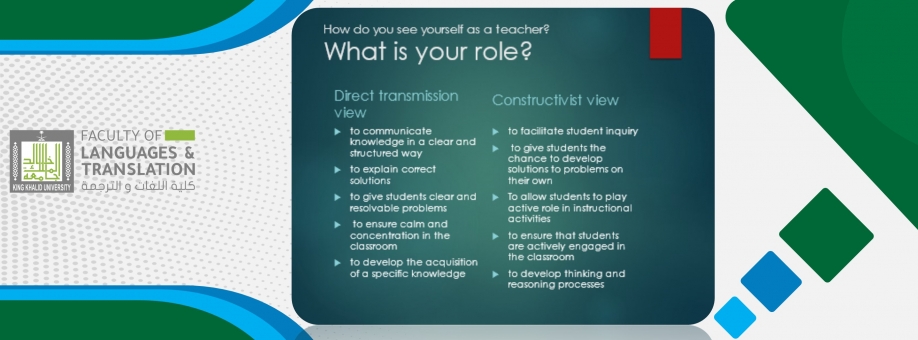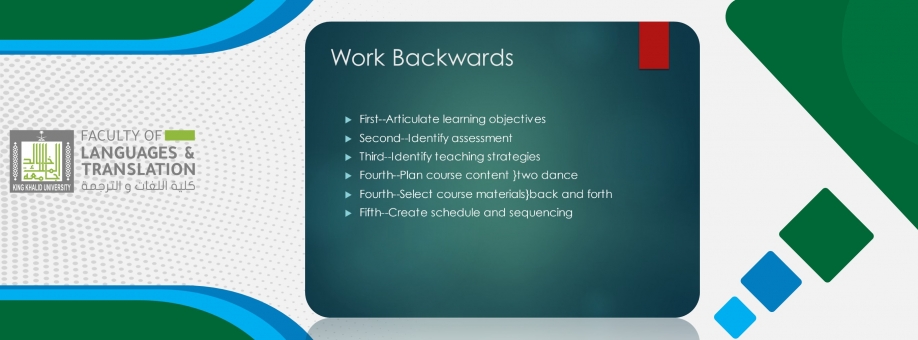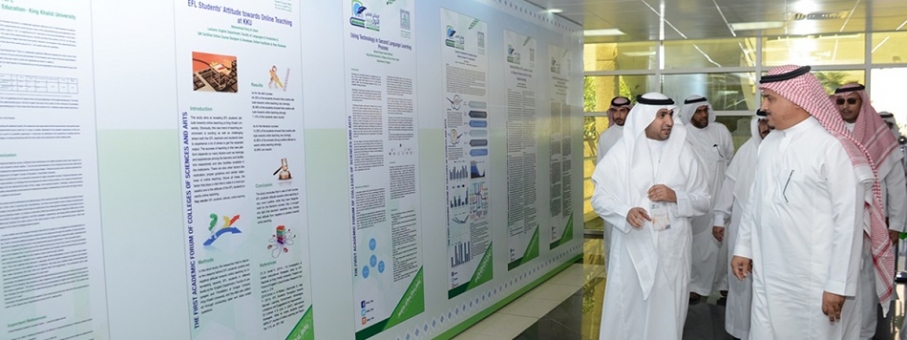Course Design: The Backwards Model
On March 21, Dr. Sheila Simpkins delivered an in-service instructor training webinar to almost 500 attendees in cooperation with the Ministry of Education Directorate in the Asir region and Rijal Alma entitled "Course Design: The Backwards Model". She began the webinar by asking participants to reflect on the question "What is your role in the classroom?" According to Dr. Sheila, the answer to this question is fundamental to course design.
She indicated that best practices in educational research tells us that we need to shift from the direct transmission view of the teacher's role towards the constructivist view. She introduced Bloom's taxonomy as a powerful tool to help teachers plan lesson/unit/course/program objectives that are in line with constructivist views of teaching/learning where the teacher is a facilitator, and the students are actively engaged and involved in learning. Best practices in teaching encourage teachers to set learning objectives that require higher-order thinking skills such as analyzing, evaluating, and creating.
Having introduced these two principals Dr. Sheila shared the backwards model of course design. She indicated that teachers should plan 'backwards' beginning with the end in mind. Teachers should ask themselves three questions.
Where do I want my students to 'be' by the end of this sequence of work?
How will I know whether they have gotten there?
What are the best strategies to support students on this journey?
Dr. Sheila indicated that all course design should take the constructivist view of teaching/learning into consideration.
With that in mind, she indicated that
Course learning objectives/outcomes should be student-centered, concrete, and observable/measurable. Bloom's taxonomy should be used here.
Assessment/assignments should be aligned with the learning objectives and they should be authentic. This means the assignments/activities that students are engaged in to learn the material are also used to evaluate their accomplishments. Assessment/assignments should be student structured, and direct evidence. Examples of this kind of assessment are role play, drama, student portfolios, journals, debates, and presentations. Rubrics should be used to measure performance. In the constructivist view, traditional paper-based measurement should be kept to a minimum.
Teaching strategies should match assessment. In other words, how you assess is how you teach. Conversely, how you teach is how you assess.
Then you plan course content and select course materials—what textbook/film/speaker will speak to the topics and help accomplish learning objectives.
The last step is to create the course schedule and sequencing. Activities must be organized to provide sufficient practice, skills must build upon another, and there must be sufficient time for feedback.
Date: 3/28/2021
Source: Faculty of Languages and Translation



